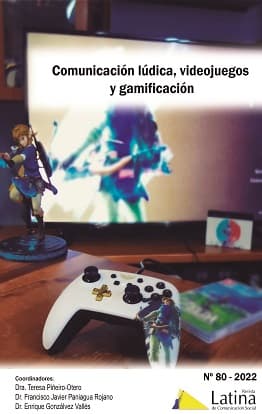Playful communication, videogames and gamification
Abstract
Video games have become one of the main creative industries. In just a few decades they have gone from being a youth subculture to authentic consumer products that -beyond entertainment- constitute artistic expressions, provide immersive experiences, present formulas for cognitive-sensory stimulation, represent opportunities for a different and in-depth approach to the current information, and offer a greater impact for advertising strategies. With an ever-growing user community, boosted by the social and health situation resulting from COVID-19, and increasingly diverse in terms of profiles and formulas for access and consumption, videogames are important socializing agents.
They have also generated an extensive culture of produse, inside and outside the web, based on the main social networks and streaming platforms. While video games have gained social and cultural relevance, there has been an expansion of gaming spaces to other contexts of everyday life. Education, business, marketing, museums... more and more areas have integrated mechanics, elements and techniques of game design to give and receive value. These gamification strategies are opportunities to involve students, staff, visitors, audiences... to motivate them and generate a commitment through the design of challenges, challenges and game worlds that - in the context of convergence - cross spaces (physical and virtual), supports and media.
In this issue of RLCS invites the research community to delve into video games, their place within the creative industries, their artistic and cultural value, their socializing character, their essence as virtual or alternative reality experiences, their presence beyond the entertainment industry (advergames, newsgames and other games), their community and the consumption-creation practices generated around them, their consolidation as a discipline or their relations with other cultural industries. The monograph is also open to contributions in the field of gamification, the design and application of game elements in non-game contexts (education, marketing, human resources, etc.), its languages and forms, media and technological applications or the perception and experience of users-players, among others. During the booming of games and ludic experiences, and their expansion through media, supports and users, it is necessary to develop studies and critical analyses that allow us to know in depth and provoke reflection on different approaches to these realities.
Keywords: videogames, creative industry, design, entertainment, serious games, gamers, produsers, applications, virtual reality, gamification, playful experiences.
Deadline: 15 April 2022
Downloads




